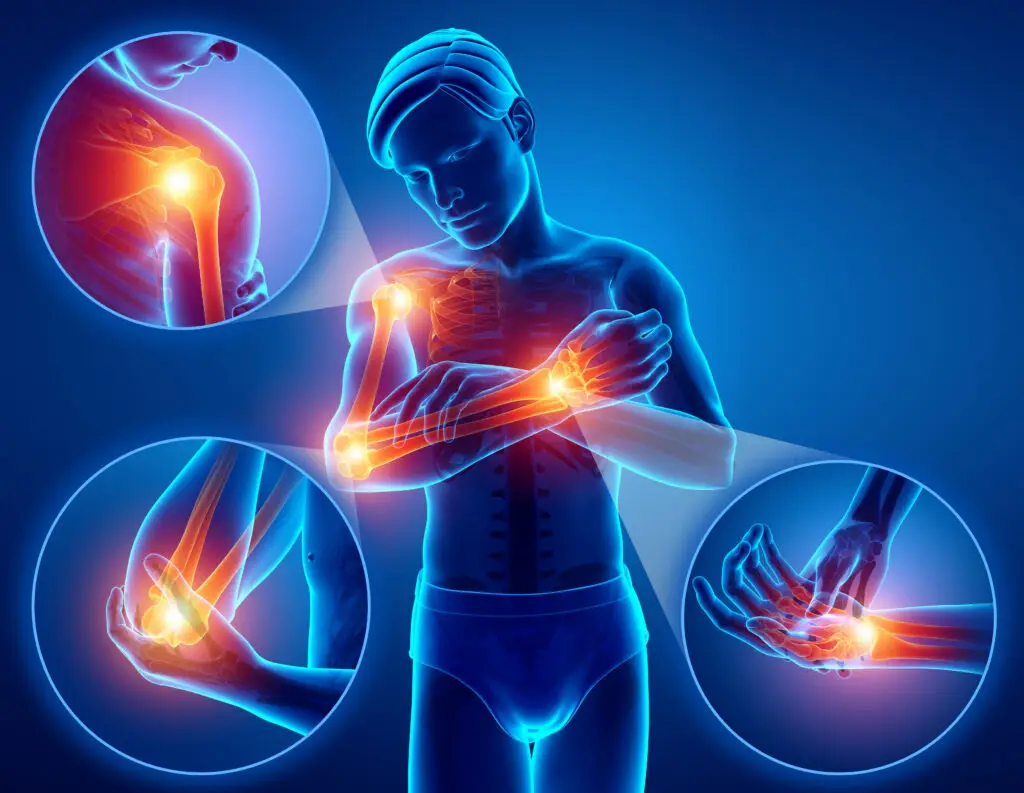Arm Injuries, they can change your life forever.
SHOULDER:
Shoulder injuries can severely impact your life, affecting your ability to work and perform everyday tasks. The pain can radiate down your arm and even cause discomfort in your neck. If you’ve recently had an accident at work and are experiencing these symptoms, you’re not alone.
Simple tasks like getting dressed or lifting your child become challenging, and you worry about your ability to keep working and pay bills. However, there’s help available. Seeking medical attention and legal advice is crucial, especially if surgery is needed for serious shoulder injuries.
Personal injury lawyers specialize in handling compensation claims for shoulder injuries. They can assess your situation, provide guidance on the legal process, and help you understand your options for compensation.
Shoulder injuries vary in severity and can include strains, tears, dislocations, and more. Rotator cuff injuries, in particular, are common and can cause pain, limited arm movement, and weakness.
Compensation for shoulder injuries can cover medical expenses, lost wages, pain and suffering, and other related costs. Depending on your case, you may file a claim under legislation or common law.
Consulting with an experienced workers’ compensation lawyer can provide you with the information and support you need to pursue your claim effectively. Fill out our free claim check form to learn more about your options.
ELBOWS:
Elbow injuries can seriously disrupt your daily life. We rely on our elbows for tasks like writing and lifting, so even a minor injury can make it hard to work for a while.
In some cases, an elbow injury could lead to a permanent disability, impacting every aspect of your life. Conditions like repetitive strain injury (RSI) or tennis elbow can cause significant pain and suffering.
If you’ve suffered an elbow injury, you may be entitled to compensation to help cover the costs of being unable to work. While the claims process can be complex, having a qualified lawyer on your side can make it easier, allowing you to focus on healing.
In this article, we’ll discuss the different types of elbow injuries and the claims you may be able to make.
Elbow Injury Compensation Claim Types:
There are various types of elbow injury claims, including those from work activities, motor accidents, and incidents in public places.
The common thread among these types is that if you’ve suffered an elbow injury due to someone else’s negligence, you may be owed compensation.
Wrist Injuries, Finger Amputation/Injury or Thumb Injury:
Here are some common scenarios in which carpal tunnel injuries may occur:
Repetitive Motion: One of the most common causes of carpal tunnel syndrome is performing repetitive tasks with the hands and wrists, such as typing on a keyboard, operating machinery, or using tools. Continuous and repetitive movements can lead to inflammation and swelling of the tissues in the carpal tunnel, putting pressure on the median nerve.
Poor Ergonomics: Working in an environment with poor ergonomics, such as improper workstation setup or using equipment that requires awkward hand positions, can increase the risk of developing carpal tunnel syndrome. Incorrect posture and positioning can contribute to increased pressure on the median nerve over time.
Forceful or Vibratory Activities: Engaging in activities that involve forceful or vibratory motions, such as using power tools, jackhammers, or vibrating machinery, can also contribute to carpal tunnel syndrome. The repetitive impact or vibration transmitted to the hands and wrists can lead to irritation and compression of the median nerve.
Trauma or Injury: Acute trauma or injury to the wrist, such as fractures, dislocations, or sprains, can cause swelling and inflammation within the carpal tunnel, leading to compression of the median nerve. This can result from accidents such as falls, motor vehicle collisions, or workplace incidents.
Underlying Health Conditions: Certain medical conditions, such as obesity, diabetes, arthritis, or thyroid disorders, can increase the risk of developing carpal tunnel syndrome. These conditions may contribute to inflammation and swelling in the wrist, narrowing the carpal tunnel and compressing the median nerve.
As a personal injury lawyer, it’s important to thoroughly investigate the circumstances surrounding a client’s carpal tunnel injury to determine liability and establish the basis for a compensation claim. This may involve gathering evidence of workplace conditions, ergonomic practices, medical records, and expert testimony to demonstrate how the injury occurred and the impact it has had on the client’s life and livelihood.
Finger and Thumb Injuries:
If you’ve suffered a finger injury due to someone else’s negligence at work, you may be entitled to compensation.
If the injury results in finger amputation, you could also be eligible for additional compensation. The amount you receive is typically based on factors such as the severity of the injury, medical expenses, lost wages, and more.
In Australia, there were approximately 15,120 serious injury claims related to hand, thumb, and finger injuries in 2018-2019. These injuries were caused by various factors, including strain, crushing, falls, and accidents involving moving objects.

Take our 2-minute free claim check
Fill in the form below to find out if you have a claim.
